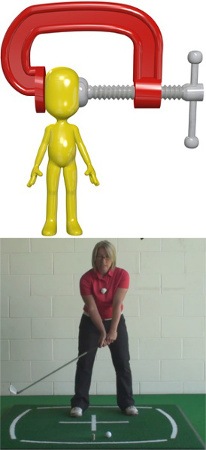The Effects of Pressure and Techniques To Help

It is all well and good to start out with a great attitude when you step onto the first tee. For a few holes, it will probably be pretty easy to stay on track with that positive attitude, doing your best to remain patient while playing one shot at a time. However, at some point in the round, things are going to get tricky. When you start to feel pressure, it will be hard to maintain your new positive attitude and you might be tempted to go back to your old ways.
As an average golfer, you might not think that pressure affects you very much during an average round. After all, isn’t pressure only an issue for professional golfers playing for millions of dollars? Not at all. Pressure affects all players, and you need to understand and respect its power. When you face a difficult shot, or you get near the end of a round and have a chance for a great score, you are sure to feel a bit nervous. If you interpret that nervousness negatively – in other words, you think of it as a bad thing – you might let it drag down your attitude. This is why you have to see pressure as a good thing. When you are nervous, you can turn this nervous energy into focus, and you may even be able to play at a higher level.
Think of pressure as the ultimate test of your ability to focus and remain positive on the course. If you can keep your attitude pointed in the right direction even while nervous, you should be in good shape no matter what comes your way on the links. For most amateur golfers, this is not reality. Most players run away from pressure, and they wind up playing poor golf as a result. Teach yourself how to embrace the challenge of playing while nervous. In the end, you will be a far better golfer – and you will get more enjoyment out of the game, as well – if you welcome the pressure that this game can provide.





